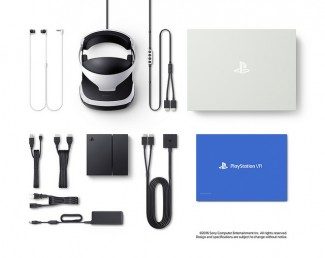Microsoft may be preparing a new, much more powerful version of their Xbox One games console codenamed ‘Scorpio’ to power the Oculus Rift some reports are suggesting.
As the gaming industry and associated press wind the hype engine up in preparation for one of the biggest gaming events of the year, E3 next month, we’re starting to see some interesting VR related reports. The latest is that the virtual reality plans we all hoped Microsoft were working on, may comprise a smart move to bring their console platform, the Xbox One, to a VR capable performance level with the Oculus Rift as the target headset. It’s also claimed MS are pursuing a partnership with Oculus to supply headsets to go with the new console, said to be released in 2017.
Reported both by Kotaku and Polygon, sources are suggesting that a secret R&D project, codenamed Scorpio, is actually a new console revision that drastically increases the XBox One’s rendering capabilities to allow it to cope with the rigours of VR. The latest figures, based on what seems to be a still evolving platform, suggests that the new target may be an impressive 5-6 Teraflops for Scorpio’s GPU.

Ever since Sony announced at GDC 2014 they would be bringing a native virtual reality platform to their PlayStation 4 console, then called Project Morpheus, now PlayStation VR (PSVR) the VR world has been waiting to see Microsoft’s next move. Whilst initially the software giant may internally have brushed off the threat this may pose to their console user base, the good press and hype surrounding PlayStation VR, due to arrive in October this year, will have left them with little doubt they needed to do something.
Beefing up the Xbox One’s specification and then cutting a deal with Oculus to target games and/or bundle a version of their hardware with the console would be a smart way to play catch up whilst eliminating the need to reinvent the VR wheel. Sony is also rumoured to be working on a similarly updated new PS4 revision, codenamed Neo (colloquially known as PS4.5) which its rumoured will also bring significant extra grunt to the platform – although the focus of rumours thus far have been on 4k gaming, in line with Sony’s consumer electronics roots.

These are all still just rumours of course, but both sites mentioned cite multiple sources for their assertions and both seem to be gaining legitimacy as we edge closer to E3, due to start in a few weeks. The pressure on Microsoft to provide a response to PS4’s early VR lead is mounting and choosing Oculus, a company built primarily around PC VR technology as a partner makes sense, especially as Xbox one and PCs share a common Windows 10 / Direct X platform base. Announcing all of this at E3 would be the perfect platform, especially of Sony choose the expo as the venue to confirm rumours of PlayStation Neo too.
Road to VR will be present at E3 in LA next month to bring you the latest news from the show floor.







